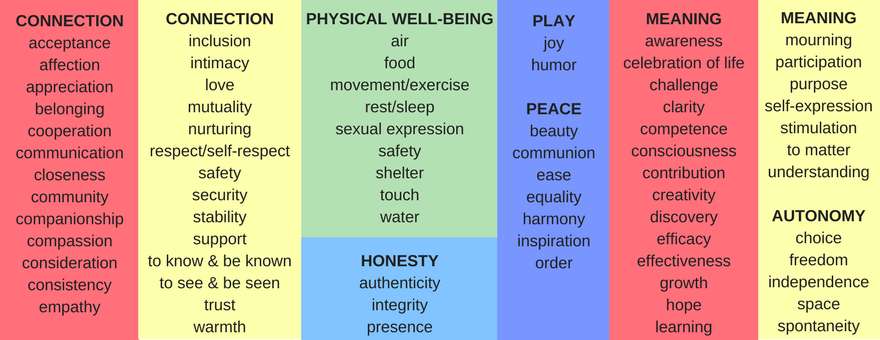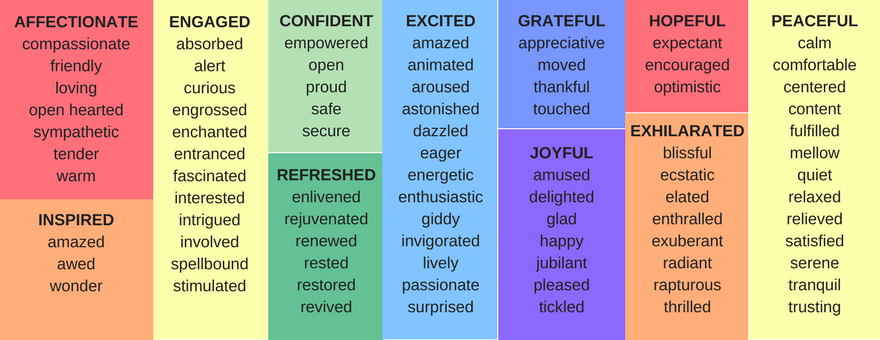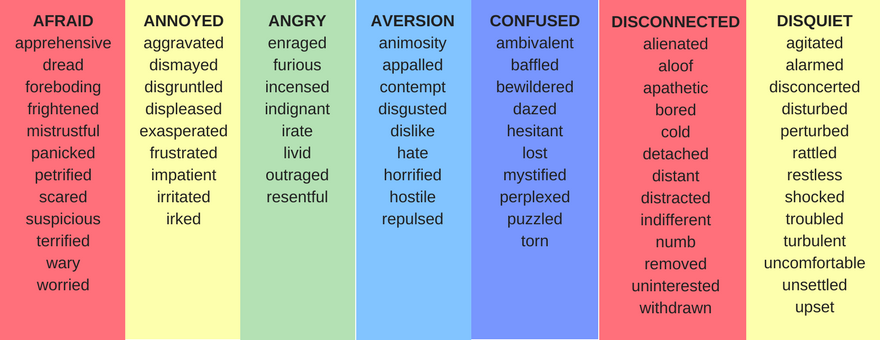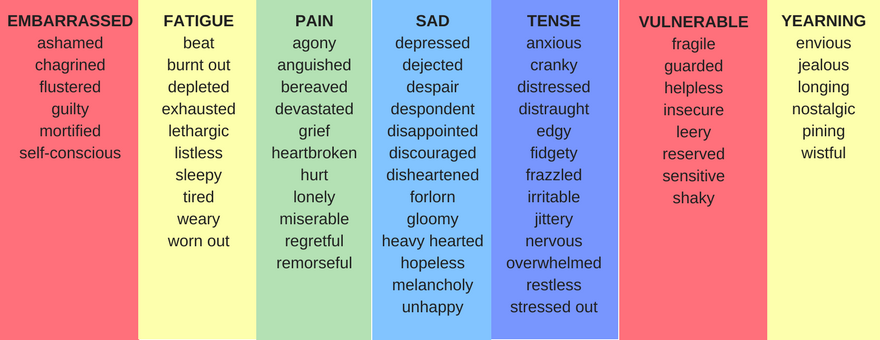Top Methods for Controlling Anxiety
Christian Counselor Spokane
I chose this title for an article in hopes that people battling anxiety would find it. People who struggle deeply with this issue want to figure out effective methods for controlling anxiety. They do battle with anxiety and want to conquer it. However, it is misleading to suggest that anyone can actually control anxiety.
 It is so natural to try to control unwanted feelings, and there are many, many resources that provide methods for doing so. A Google search will produce a multitude. Here is an excerpt with “11 tips to control your anxiety” from www.calmclinic.com (condensed; words in bold were placed in bold by me to make a point)
It is so natural to try to control unwanted feelings, and there are many, many resources that provide methods for doing so. A Google search will produce a multitude. Here is an excerpt with “11 tips to control your anxiety” from www.calmclinic.com (condensed; words in bold were placed in bold by me to make a point)
“Anxiety can easily be described as a problem with control. Suffering from anxiety means that you have a fight or flight system that is over-active, and you can’t control your fears, your physical sensations, and more. That’s why it’s so important to learn to control your anxiety. Anxiety control is something that you can do in the comfort of your own home with the right techniques. The following are 11 easy and effective ways to start controlling your anxiety now.”
1. Jogging and exercise
2. Thought journal
3. Positivity journal
4. Podcast distraction
5. Lovemaking
6. Magnesium
7. Drinking water
8. Walking/talking
9. Desensitization
10. Retrain your breathing
11. Faking it
Seriously? Faking it?
Not all of the above tips are bad in and of themselves (except maybe “Faking it”). But none of them incorporate the actual feeling of anxiety that is being experienced. They have a theme of distraction. Essentially, the message is “Focus on something else, suppress the feeling, ignore the feeling, pretend it doesn’t exist.” Guess what? While these actions may temporarily relieve anxiety in the moment, they will actually increase your anxiety over time, because you are not allowing yourself to feel or express your anxiety.
I have discovered a little-known truth. It’s not a secret, but people generally don’t embrace this truth.
 Here it is: We cannot control our feelings. Anxiety is a feeling. Therefore, we cannot control anxiety. Some might argue that we can indeed control our feelings, that we choose how to feel at any given moment. I argue that we can only choose actions, not feelings. Feelings just happen. They come and they go.
Here it is: We cannot control our feelings. Anxiety is a feeling. Therefore, we cannot control anxiety. Some might argue that we can indeed control our feelings, that we choose how to feel at any given moment. I argue that we can only choose actions, not feelings. Feelings just happen. They come and they go.
We cannot choose a feeling, nor can we choose when or where to experience a feeling, but we CAN choose what action to take when we experience a feeling.
So let’s examine anxiety. I’ll start with Merriam-Webster:
anxiety:
(1): apprehensive uneasiness or nervousness usually over an impending or anticipated ill: a state of being anxious
(2) medical: an abnormal and overwhelming sense of apprehension and fear often marked by physical signs (such as tension, sweating, and increased pulse rate), by doubt concerning the reality and nature of the threat, and by self-doubt about one’s capacity to cope with it
a: mentally distressing concern or interest
b: a strong desire sometimes mixed with doubt, fear, or uneasiness
By definition, anxiety encompasses more than one feeling: uneasiness, nervousness, apprehension, self doubt, distress, fear. Anxiety is accompanied by physical symptoms such as tension, sweating, increased pulse rate. I would add shaking, upset stomach, and headaches.
Everyone experiences anxiety at varying degrees throughout life. However, not everyone experiences debilitating anxiety, or so much anxiety that it interferes with work, relationships, and living life to the fullest. And I do believe God wants us to be able to live life to the fullest.
The thief comes only to steal and kill and destroy; I have come that they may have life, and have it to the full. – John 10:10
Our perception is that anxiety is the thief. But the real thieves are the damaging actions we choose when we feel the anxiety (or any negative emotion, in fact).
Methods for Controlling Anxiety
How can we learn to nurture ourselves when we feel anxiety instead of avoid it or distract ourselves from it in an effort to control it?
Pay attention
First, learn to pay attention to the primary feeling of anxiety and the secondary feelings associated with it. Just like you would pay attention to your child or friend or spouse who expresses feelings associated with anxiety, you must pay attention to your own feelings. In paying attention to feelings, it’s helpful to name them and understand their context. They are usually triggered by a stressful situation or by the behavior of another person. What did you see, hear, or experience that caused you to feel anxiety?
Accept
Second, accept the feelings. Extend understanding, empathy, and compassion to yourself. Use caring language such as, “It’s understandable why you feel this way” vs. damaging language such as, “You shouldn’t feel that way,” “This is so stupid, just get over it,” or “You are overreacting.” Caring language promotes acceptance of and compassion for your feelings. Damaging language promotes minimization or dismissal of your feelings.
Identify Your Needs
When you experience anxiety or other “negative” feelings, try to identify any needs that are not being met. There is a strong connection between feelings and needs. In his book, Living Nonviolent Communication, Marshall Rosenberg describes feelings we experience when our needs are not met vs. feelings we experience when our needs are met
He provides very useful “Feelings Charts” and “Needs Inventories” to guide people as they seek to identify feelings and needs. (These can also be found on the website www.cnvc.org. See Appendix below to see the charts and more information.) When you connect your feelings to your needs, you find validation and an internal grounding or centering that actually helps to alleviate anxiety.
Support yourself
Once you pay attention to your feelings, accept them, and identify your needs, you will be able to support yourself more effectively. Now you are ready to identify healthy actions that will put you on the path toward getting your needs met. Actions to support yourself might include things like the ideas from the list cited in the beginning of this article. The difference is that you first took time to connect to your feelings and needs, and as a result, you are better equipped to identify the actions that will truly be supportive.
These concepts are consistent with mindfulness and acceptance strategies described in many therapeutic resources. It is referred to as “Acceptance Based Behavioral Therapy,” or ABBT.
 “ABBT encourages people to approach their emotions and reactions as natural and normal and to realize that these feelings are not permanent ways of being, but that they will increase and decrease over time. You’re taught to think about how you feel with curiosity and compassion rather than judgment and to accept these experiences instead of trying to control them, which can result in less stress.
“ABBT encourages people to approach their emotions and reactions as natural and normal and to realize that these feelings are not permanent ways of being, but that they will increase and decrease over time. You’re taught to think about how you feel with curiosity and compassion rather than judgment and to accept these experiences instead of trying to control them, which can result in less stress.
Ultimately, the therapy encourages people to act in ways that are consistent with what’s important to them rather than in ways that will avoid undesired emotions” (Mindfulness and Acceptance-Based Behavioral Therapy for Anxiety and Depression, Kristin Stewart, www.everydayhealth.com).
When you stop trying to control anxiety, and instead learn to pay attention to it, accept it, identify your needs, and develop an action plan to support yourself, you will find that anxiety no longer rules or paralyzes you.
Appendix:
The following information came from:
Center for Nonviolent Communication
Website: www.cnvc.org
Email: cnvc@cnvc.org
Phone: 505-244-4041
The following are words we use when we want to express a combination of emotional states and physical sensations. This list is neither exhaustive nor definitive. It is meant as a starting place to support anyone who wishes to engage in a process of deepening self-discovery and to facilitate greater understanding and connection between people.
There are two parts to this list: feelings we may have when our needs are being met, and feelings we may have when our needs are not being met.
Feelings when your needs are satisfied:
Feelings when your needs are not satisfied:
Needs Inventory:

To help with effectively communicating your feelings and needs, and to learn how to listen effectively to others, learn more about Nonviolent Communication (NVC):
“NVC involves both communication skills that foster compassionate relating and consciousness of the interdependence of our well-being and using power with others to work together to meet the needs of all concerned.
This approach to communication emphasizes compassion as the motivation for action rather than fear, guilt, shame, blame, coercion, threat or justification for punishment. In other words, it is about getting what you want for reasons you will not regret later. NVC is NOT about getting people to do what we want. It is about creating a quality of connection that gets everyone’s needs met through compassionate giving.
 The process of NVC encourages us to focus on what we and others are observing separate from our interpretations and judgments, to connect our thoughts and feelings to underlying human needs/values (e.g. protection, support, love), and to be clear about what we would like towards meeting those needs. These skills give the ability to translate from a language of criticism, blame, and demand into a language of human needs – a language of life that consciously connects us to the universal qualities ‘alive in us’ that sustain and enrich our well-being, and focuses our attention on what actions we could take to manifest these qualities…”
The process of NVC encourages us to focus on what we and others are observing separate from our interpretations and judgments, to connect our thoughts and feelings to underlying human needs/values (e.g. protection, support, love), and to be clear about what we would like towards meeting those needs. These skills give the ability to translate from a language of criticism, blame, and demand into a language of human needs – a language of life that consciously connects us to the universal qualities ‘alive in us’ that sustain and enrich our well-being, and focuses our attention on what actions we could take to manifest these qualities…”
Nonviolent Communication Skills
“NVC offers practical, concrete skills for manifesting the purpose of creating connections of compassionate giving and receiving based in a consciousness of interdependence and power with others.
These skills include:
Differentiating observation from evaluation, being able to carefully observe what is happening free of evaluation, and to specify behaviors and conditions that are affecting us;
Differentiating feeling from thinking, being able to identify and express internal feeling states in a way that does not imply judgment, criticism, or blame/punishment;
Connecting with the universal human needs/values (e.g. sustenance, trust, understanding) in us that are being met or not met in relation to what is happening and how we are feeling; and
Requesting what we would like in a way that clearly and specifically states what we do want (rather than what we don’t want), and that is truly a request and not a demand (i.e. attempting to motivate, however subtly, out of fear, guilt, shame, obligation, etc. rather than out of willingness and compassionate giving).
These skills emphasize personal responsibility for our actions and the choices we make when we respond to others, as well as how to contribute to relationships based on cooperation and collaboration.
With NVC we learn to hear our own deeper needs and those of others, and to identify and clearly articulate what “is alive in us.” When we focus on clarifying what is being observed, felt, needed, and wanted, rather than on diagnosing and judging, we discover the depth of our own compassion. Through its emphasis on deep listening – to ourselves as well as others – NVC fosters respect, attentiveness and empathy, and engenders a mutual desire to give from the heart. The form is simple, yet powerfully transformative.”
Nonviolent Communication: A Language of Life by Marshall B. Rosenberg, Ph.D.
Photos
“Worried,” courtesy of Eneas De Troya, Flickr CreativeCommons (CC BY 2.0); “Sticky Brook Yoga,” courtesy of Matthew Ragan, Flickr Creative Commons; “Woman in a Grotto,” courtesy of skeeze, pixabay.com CC0 Public Domain License








